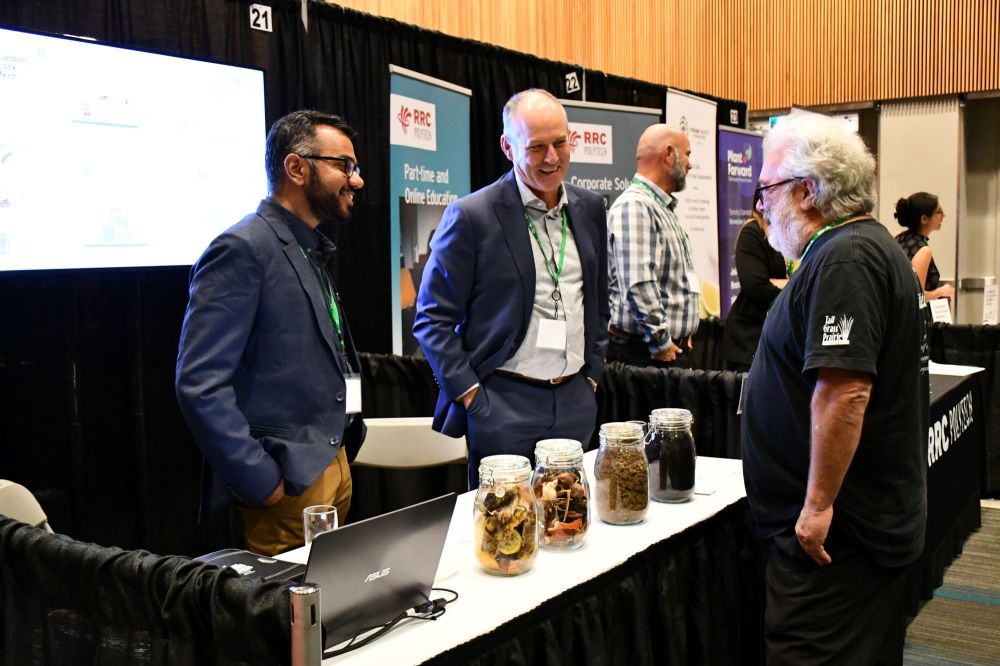The Sustainability Surge Is Coming — Manitoba Food & Beverage Businesses Are Getting Prepared
Advertisement
Read this article for free:
or
Already have an account? Log in here »
To continue reading, please subscribe:
Monthly Digital Subscription
$0 for the first 4 weeks*
- Enjoy unlimited reading on winnipegfreepress.com
- Read the E-Edition, our digital replica newspaper
- Access News Break, our award-winning app
- Play interactive puzzles
*No charge for 4 weeks then price increases to the regular rate of $19.00 plus GST every four weeks. Offer available to new and qualified returning subscribers only. Cancel any time.
Monthly Digital Subscription
$4.75/week*
- Enjoy unlimited reading on winnipegfreepress.com
- Read the E-Edition, our digital replica newspaper
- Access News Break, our award-winning app
- Play interactive puzzles
*Billed as $19 plus GST every four weeks. Cancel any time.
To continue reading, please subscribe:
Add Free Press access to your Brandon Sun subscription for only an additional
$1 for the first 4 weeks*
*Your next subscription payment will increase by $1.00 and you will be charged $16.99 plus GST for four weeks. After four weeks, your payment will increase to $23.99 plus GST every four weeks.
Read unlimited articles for free today:
or
Already have an account? Log in here »
Hey there, time traveller!
This article was published 09/11/2022 (1125 days ago), so information in it may no longer be current.

Saying that it’s been a tricky couple of years for Manitoba businesses in the food and beverage sector might just be the understatement of the century. Coming off the back of the pandemic that forced restaurants and retailers to close their doors, only to reopen amidst a massive labour shortage has given business owners some of the most trying times of their professional lives.
That’s without mentioning the global food shortages caused by the Russia-Ukraine conflict and extreme weather events like the Manitoba drought in 2021 and historic flooding from earlier this year. How many more obstacles can Manitoba food growers, processors, distributors, and retailers possibly manage?
Well, there’s at least one more. Spurred on by the climate crisis, governments, investors, and consumers are now demanding that business activities meet a standard of sustainability beyond what’s been required in the past.
The good news, however, is that Manitoba is beautifully positioned to reap the rewards of the sustainability push.
The Incoming Sustainability Wave
The current state of the climate and social inequality issues have launched calls for big changes worldwide. Businesses are being asked to report on their environmental, social, and governance (ESG) factors, and conscious consumers are quick to call out those who aren’t being entirely truthful. ESG reporting isn’t yet mandatory in Canada, but things are moving quickly.
Spurred on by the climate crisis, governments, investors, and consumers are now demanding that business activities meet a standard of sustainability beyond what’s been required in the past.
Sobeys, for example, has announced they want to achieve complete net zero emissions by 2050. That means Manitoba farmers, processors, and distributors who supply Sobeys, directly or indirectly, will need to transition towards net zero emissions to stay competitive or Sobeys will look for other, more sustainable suppliers.
To ensure that businesses are prepared for the incoming ESG wave, Food & Beverage Manitoba held a sustainability conference, providing guidance for business leaders to navigate the evolving sustainability landscape.
Cultivate: Sustainability Conference and Trade Show
“We wanted to say here are the big picture trends. Are you prepared for net zero commitments from retailers? If investors are asking for ESG data, how do you break it down?” says Michael Mikulak, executive director of Food & Beverage Manitoba.
The conference, which took place on September 7, brought together business and innovation leaders from across Manitoba to accelerate the conversation around sustainability and ensure that businesses are well-equipped to deal with the market’s new demands.
If Manitoba businesses embrace the sustainability movement, they are in a position to flourish
Mikulak is looking forward to this challenge and the advantages that Manitoba businesses enjoy compared to other regions in the world.
“We have a green electricity grid here — this is a huge selling feature. For a company that wants to market around the world with their products, they can say that this was created with a green electricity grid.”
That, along with sustainable agriculture practices and food innovation, positions Manitoba to emerge as a sustainability leader.
“Farmers in the prairies have been leaders in no-till agriculture for decades,” Mikulak says, adding that right now Manitoba is becoming an alternative protein powerhouse in the world.
While an additional hurdle to production and sales is probably not what companies were looking for, it’s a bit of a blessing in disguise. If Manitoba businesses embrace the sustainability movement, they are in a position to flourish under the influx of investor and consumer dollars in search of the most sustainable brands.



